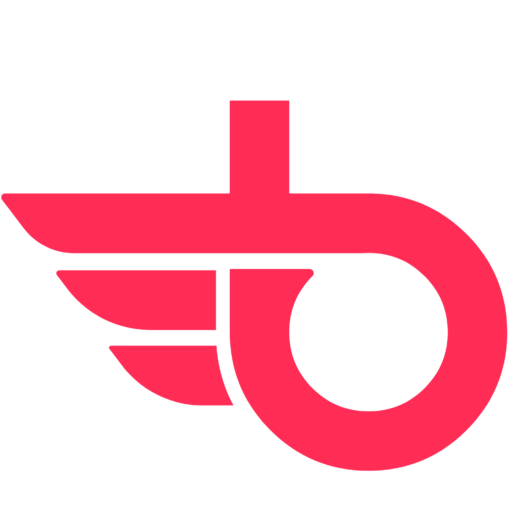Introduction
In today’s competitive business world, the role of a business controller is critical for ensuring financial health and guiding strategic decisions. A business controller vacature (job vacancy) is an opportunity for professionals who want to take charge of managing finances, improving business operations, and driving company growth. But what does this position involve, and what makes a successful candidate? In this article, we’ll dive into the key aspects of a business controller vacature, helping you understand the role, responsibilities, qualifications, and much more.
What is a Business Controller?
A business controller plays a key role in any organization by overseeing financial operations, ensuring accurate reporting, and helping to shape strategic decisions. The controller’s duties often bridge accounting and financial analysis, with a focus on budgeting, forecasting, and performance evaluation. They act as a link between the finance department and other management teams to ensure financial targets are met and strategies are effectively implemented.
In short, a business controller vacature offers a chance to take a leadership role in guiding an organization’s financial success.
Key Responsibilities of a Business Controller
When searching for a business controller vacature, it’s important to understand what this position entails. Below are the main responsibilities typically associated with this role:
1. Financial Planning and Analysis (FP&A)
One of the core duties of a business controller is financial planning and analysis. This involves creating and monitoring budgets, forecasting future revenue and expenses, and analyzing financial data to assess the company’s financial health.
2. Cost Control and Optimization
Business controllers are responsible for identifying areas where a company can reduce costs or optimize its financial resources. They assess spending patterns and make recommendations to improve efficiency.
3. Internal Controls and Compliance
Ensuring compliance with internal controls and legal regulations is crucial. Business controllers implement processes and checks to ensure that the organization follows best practices and adheres to financial laws.
4. Management Reporting
Business controllers prepare regular financial reports that are presented to senior management. These reports may include profit and loss statements, balance sheets, and cash flow statements, all of which are essential for decision-making.
5. Risk Management
In addition to financial analysis, business controllers assess financial risks and work to mitigate them. This includes monitoring external market conditions and internal processes that could impact the company’s financial position.
Required Skills for a Business Controller Vacature
A business controller vacature is not just about having a background in finance. Several specific skills are necessary to excel in this role. Some of these skills include:
1. Strong Analytical Skills
A business controller needs to analyze large amounts of data and draw insights that can inform business decisions. The ability to spot trends, identify risks, and provide actionable recommendations is critical.
2. Financial Expertise
Naturally, a business controller must have a strong understanding of financial principles, accounting standards, and financial reporting. This includes proficiency in financial software and tools.
3. Communication Skills
The role often involves interacting with various departments and senior leadership, so clear communication is essential. Business controllers must be able to present complex financial data in an understandable way.
4. Attention to Detail
Accuracy is paramount in financial reporting and analysis. A business controller must be detail-oriented to ensure all figures and reports are correct and reflect the company’s true financial position.
5. Problem-Solving Abilities
Business controllers often face complex challenges that require innovative solutions. Whether it’s finding ways to optimize budgets or mitigate financial risks, strong problem-solving skills are necessary.
Educational Qualifications and Experience for a Business Controller Vacature
To apply for a business controller vacature, candidates typically need a solid educational background and relevant experience. Below are the common requirements:
1. Educational Background
A bachelor’s degree in finance, accounting, economics, or a related field is typically required. Some companies may prefer candidates with a master’s degree or professional certification, such as:
- Certified Public Accountant (CPA)
- Chartered Financial Analyst (CFA)
- Certified Management Accountant (CMA)
2. Relevant Experience
While some entry-level positions may be available, most business controller vacature listings require candidates with several years of relevant experience in finance or accounting. This includes experience with budgeting, financial reporting, and business analysis.
3. Industry-Specific Knowledge
Depending on the company, industry-specific knowledge may be required. For example, a business controller in the manufacturing industry may need to understand production costs, while a controller in a tech company should be familiar with software development budgets and financial forecasting.
How to Find a Business Controller Vacature?
Now that you have a better understanding of what a business controller vacature entails, how do you find the right job opportunities? Here are some useful tips:
1. Job Portals and Career Websites
There are several online platforms that list job openings for business controllers. Websites like LinkedIn, Glassdoor, and Indeed are good places to start your search. You can filter results by location, salary range, and industry to find the best-fit roles.
2. Networking
Networking is another excellent way to find job opportunities. Attend industry conferences, webinars, or local meetups to connect with professionals in the finance sector. Building relationships can open doors to job openings that may not be advertised publicly.
3. Recruitment Agencies
Many recruitment agencies specialize in finance and accounting roles. Partnering with an agency can help you access exclusive job opportunities and receive personalized job search advice.
Salary Expectations for a Business Controller
Salaries for business controllers can vary based on location, experience, and the size of the company. However, on average, business controllers in the Netherlands or the UK can expect to earn anywhere from €50,000 to €80,000 annually. Senior positions or roles in larger organizations may offer salaries exceeding €100,000.

FAQs about Business Controller Vacature
1. What is the main role of a business controller?
The main role of a business controller is to oversee financial planning, budgeting, forecasting, and reporting to ensure the company’s financial health. They also manage internal controls and compliance, optimize costs, and mitigate financial risks.
2. What skills are needed for a business controller vacature?
Key skills include strong analytical abilities, financial expertise, attention to detail, problem-solving skills, and excellent communication. A business controller must also be proficient in financial software and tools.
3. What qualifications are required for a business controller vacature?
Typically, candidates need a bachelor’s degree in finance, accounting, economics, or a related field. Relevant professional certifications, such as CPA, CFA, or CMA, are also highly valued.
4. How do I apply for a business controller vacature?
You can apply for a business controller vacature through online job portals, recruitment agencies, or by networking within the finance industry. Make sure your resume highlights relevant experience and qualifications.
5. What is the salary of a business controller?
The salary for a business controller varies based on experience and location but typically ranges from €50,000 to €80,000 annually. Senior positions may offer higher salaries.
Conclusion
A business controller vacature is an exciting opportunity for those looking to make an impact in financial management. Whether you’re just starting your career or have years of experience, the role offers room for growth, learning, and contributing to business success. By understanding the key responsibilities, required skills, qualifications, and salary expectations, you can make an informed decision and take the next step in your career.









